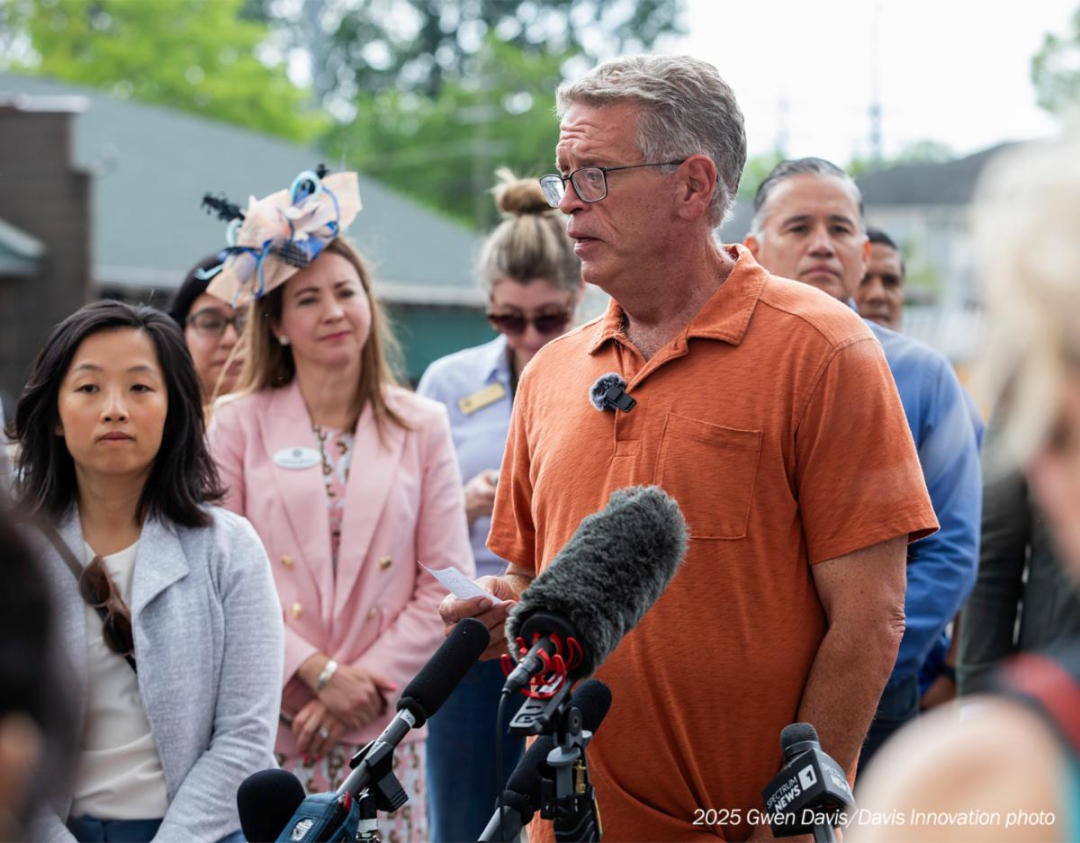A coalition of businesses that rely heavily on guest-worker visas used the backdrop of the Kentucky Derby on Thursday to press for the adoption of new immigration rules that would increase the availability of the visas for agricultural and backstretch workers and set them on a path to citizenship.
Organized by the American Business Immigration Coalition and held at a barn on the Churchill Downs backstretch, the press conference included comments from Dale Romans, a trainer who was last year elected as the president of the Kentucky Horsemen’s Benevolent and Protective Association, and Eric Hamelback, the chief executive of the National HBPA. The group pointed to a recent comment from President Donald Trump as an indication of support for increasing the number of visas available for backstretch and farm workers while also hinting at a path to citizenship. Foreign backstretch workers generally qualify under the H-2B visa program, while agriculture workers qualify under the H-2A. The programs have similar requirements.
Romans said that 78 percent of workers on the backstretch are “immigrants,” but he did not say whether those workers were granted visas under the H-2B program.
“The industry cannot survive without them,” Romans said. “We are prepared to work with President Trump and Congress and to be at the table to create a legal process for the farming and equine industries.”
:: DRF Kentucky Derby Package: Save on PPs, Clocker Reports, Betting Strategies, and more.
Despite bipartisan support for some kind of immigration reform, liberals and conservatives remain far apart on the details of that reform. Those differences have been hard to reconcile, especially in a highly partisan political environment in which the sides often use immigration trends as political footballs.
In 2024, a bipartisan group of senators hashed out a major reform bill, but the effort died on the vine after Trump, when campaigning for a second term, said he opposed the legislation, causing rank-and-file Republicans to defect. Earlier this week, however, Trump made vague comments during a Cabinet meeting that seemed to suggest he could support legislation that would help “certain farmers.”
“We’re going to let them stay in for a while and work with the farmers and then come back and go through a process, a legal process,” Trump said, according to a transcript of the meeting. “We have to take care of our farmers and hotels and various places where they need people.”
Farm constituencies have reached out to the Trump administration on multiple fronts since the beginning of his term only three months ago. Since Trump took office, agencies benefiting the agricultural industry have come under the chopping block and tariffs have begun disrupting trade around the world. At the same time, the administration has said that it is prioritizing deportations of illegal immigrants.
The H-2A and H-2B visa programs each issue tens of thousands of visas to foreign workers every six months, usually under a cap set by law. However, the Department of Homeland Security is authorized to approve additional visas in response to labor market conditions – usually based on lobbying efforts from the business community – and the department has consistently and often quietly sanctioned overdrafts, even during Trump’s first term.
Under the program, guest workers are required to return to their home countries every year. The visas can be renewed, but there is no path through the program toward eventual citizenship, a consistent complaint from the industries that rely on the workers. Applications for the visas are also time-consuming, and immigration attorneys have said that it costs approximately $10,000 per visa for processing and compliance costs.
“We need lawmakers to prioritize legislation to streamline legal status for this population, and we are eager to partner with the President and Congress,” Hamelback said at the press conference.
“The immigration process is unnecessarily complex and bureaucratic,” said Will Velie, an immigration lawyer who works with the racing industry, at the press conference. “Federal immigration policy needs to meet the needs of the moment, and the horse racing industry desperately needs skilled workers to ensure its success.”
According to the American Business Immigration Coalition, immigrants make up approximately 72 percent of the agricultural workforce in the U.S.
“The immigration system is failing them,” said Rebecca Shi, the ABIC's chief executive officer. “We support President Trump’s comment about creating a legal process for law-abiding farm workers to contribute and grow the horse racing industry for decades to come.”
:: Want to learn more about handicapping and wagering? Check out DRF's Handicapping 101 and Wagering 101 pages.

